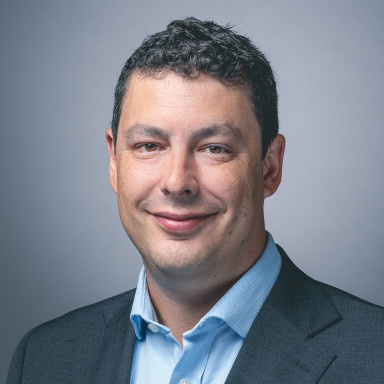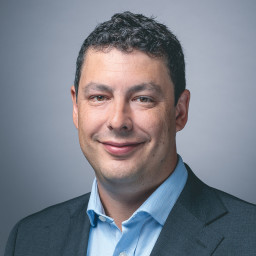Pruksa Iamthongthong and Flavia Cheong have plenty of experience investing in the Asia Pacific region
abrdn have a well-resourced team and benefit from on the ground expertise
More recently the fund has underperformed its benchmark and peers
This fund does not currently feature on our Wealth Shortlist of funds chosen by our analysts for their long-term performance potential
How it fits in a portfolio
The abrdn Asia Pacific Equity fund aims to provide long-term growth by investing in companies across the Asia Pacific region, excluding Japan. This includes companies in developed economies such as Singapore and Australia as well as emerging markets like India and China.
The fund could provide broad exposure to Asian markets as part of a well-diversified portfolio. It could be useful to help diversify a portfolio more focused on the US, UK and Europe. Be aware that this fund invests in emerging markets, which increases risk.
The fund is not part of our Wealth Shortlist of funds recommended for their long-term performance potential.
Manager
The fund is managed by a ‘pod’ of four individuals based in Singapore, who work collaboratively in selecting stocks and building the fund. The four individuals are Pruksa Iamthongthong, Flavia Cheong, James Thom and Jerry Goh.
Iamthongthong is an experienced investor and has been managing this fund since 2007. She’s also deputy head of the wider Asia Pacific Equities team at abrdn. In the event that there’s a disagreement on the team, she has final say over stock selection.
Cheong’s another very experienced investor, having joined abrdn in 1996 and been named as a manager on this fund ever since. She’s also abrdn’s Head of Asia Pacific Equities.
Thom also has meaningful experience, having joined abrdn in 2010.
The management team are supported by a large team of analysts based across the region, with offices in cities such as Hong Kong, Shanghai and Bangkok. This allows for good access to companies and helps to provide key insights into what’s going on across the region.
Process
The investment process of the team is based on ‘quality’, where they search for companies with financial strength who they believe can maintain a competitive advantage over their peers. They aim to hold onto companies for many years and so look for those with the potential to generate long-term growth.
An emphasis is placed on factors such as a company having a strong management team and being in good financial health. The team at abrdn feel these things are important for a company’s ability to capitalise on opportunities to create value. They often look for companies that operate in sectors that are seeing a change in dynamic which companies can take advantage of, such as adoption of new technologies.
Spending time with company management is important to the team at abrdn as they feel this is a good way of gaining insights into a business’ prospects. Having team members based throughout Asia gives the ability to hold company meetings regularly. They also like to engage on environmental, social and governance (ESG) issues with companies as improved outcomes in these areas could lead to better shareholder returns in the future.
The fund managers have currently invested more in China than any other country, at 24.5% of the fund. Although this is slightly less than the comparative benchmark. The fund has invested more than the benchmark in India, and this allocation makes up 23.6% of the fund.
During the last year, the team have made a number of changes to their fund. They have invested in Meituan, a Chinese online platform used for shopping and consumer services, as the team have seen the company’s market share increase. They have also bought shares in the South Korean semiconductor company SK Hynix.
To accommodate these additions, the fund managers sold investments in the Indian automobile manufacturer Mahindra & Mahindra and Infosys, an Indian technology services company. Other sales included Ayala Land in the Philippines and Aier Eye Hospital Group in China, which was sold as demand for treatment fell below expectations.
Culture
Aberdeen merged with Standard Life in 2017 to become Aberdeen Standard Investments, and subsequently renamed as abrdn in 2021. The Asian Equities team is a long-standing and well-respected part of their business. The team have made some small adjustments to their investment processes over the last couple of years. We find this encouraging that the team are always looking for ways to improve.
The broader team is responsible for a range of funds and investment trusts that invest across Asia and emerging markets. Each member provides input to the wider franchise, and they're willing to share their knowledge and experience to ensure their best ideas make it into their funds.
ESG Integration
abrdn is a firm well known for its commitment to Environmental, Social and Governance (ESG) investing. Responsible investing has been part of the business since its Corporate Governance team was set up in 1992. They launched their first ethical fund in 1994. We like that the firm’s policy positions on a range of divisive issues, from plastics and tobacco to palm oil and biodiversity, are easily available on their website. The firm also produces frequent ESG-related thought leadership articles, a podcast series and an annual Stewardship report.
We’re pleased to see that the firm’s commitment to ESG has filtered down to the fund level. abrdn fund managers generally see themselves as owners of businesses, not investors, and stewardship is an important part of their investment processes. The firm exercises all voting rights and engages with management to encourage best practice.
ESG and stewardship factors are included in every stock research note and each firm receives an ESG score, based on its ESG credentials and ability to manage ESG risks. In fixed income, ESG risks are assessed and priced alongside other credit risks, and the managers encourage action that will reduce these risks. As with equities, each issuer receives an ESG risk rating. abrdn fixed income managers can invest in bonds issued by companies with a poor ESG risk rating but require greater compensation via the credit spread. All managers have access to a central ESG team, as well as specialist on-desk analysts.
The company runs several exclusions-based and impact funds, which take their commitment to society, the environment, and other thematic investment goals a step further. This is not one of those funds though, meaning that while ESG risks are integrated into stock analysis, the team can still invest in companies that have notable ESG risks associated with them.
Investors should note that, of the funds under our research coverage, this is one of the most carbon intense. The companies within the fund may face increased scrutiny from investors and regulators, as well as higher costs associated with carbon emissions management and potential carbon pricing mechanisms, potentially impacting the fund’s performance.
Cost
The fund usually has an annual ongoing charge of 0.85%, but we have secured an ongoing saving of 0.30%, meaning the net cost to HL clients is 0.55%.
The fund discount is achieved through a loyalty bonus, which could be subject to tax if held outside of an ISA or SIPP. The HL platform fee of up to 0.45% per year also applies, except in the HL Junior ISA, where no platform fee applies.
Performance
Since August 2007, when Pruksa Iamthongthong started managing this fund, it’s returned 213.08%*. This trails the MSCI AC Asia Pacific ex Japan benchmark, which returned 231.47% over the same period. It’s also behind the 218.20% average returns in the IA Asia Pacific Excluding Japan sector. Past performance isn’t a guide to future returns. Investors should note that performance over the long term is also attributable to Hugh Young, who retired in 2023 after a long career as an Asian equities manager at abrdn.
Performance has suffered recently. Although the fund saw positive returns of 11.35% over the last year, this was behind both benchmark and the wider sector. These returned 20.73% and 17.12% respectively.
Our analysis shows that stock selection by the fund managers was a detractor over the last twelve months, particularly in Australia, China and Hong Kong. AIA Group, an insurance company based in Hong Kong, and PT Telkom, an Indonesian telecommunications company, were two negative contributors to performance. Investments in the Singaporean financial company DBS Group and Taiwan Semiconductor Manufacturing Company were positives for the fund.
During this difficult period of performance, the fund managers have persevered with their investment style. This is something we like to see. They have also taken the opportunity to reflect on their process and are learning from areas where they feel improvements could be made.
31/01/2020 To 31/01/2021 | 31/01/2021 To 31/01/2022 | 31/01/2022 To 31/01/2023 | 31/01/2023 To 31/01/2024 | 31/01/2024 To 31/01/2025 | |
|---|---|---|---|---|---|
abrdn Asia Pacific Equity | 31.68% | -7.75% | -0.56% | -15.57% | 11.35% |
IA Asia Pacific Excluding Japan | 28.13% | -4.94% | 2.07% | -10.62% | 17.12% |
MSCI AC Asia Pacific ex Japan | 26.68% | -7.60% | 2.11% | -8.75% | 20.73% |


